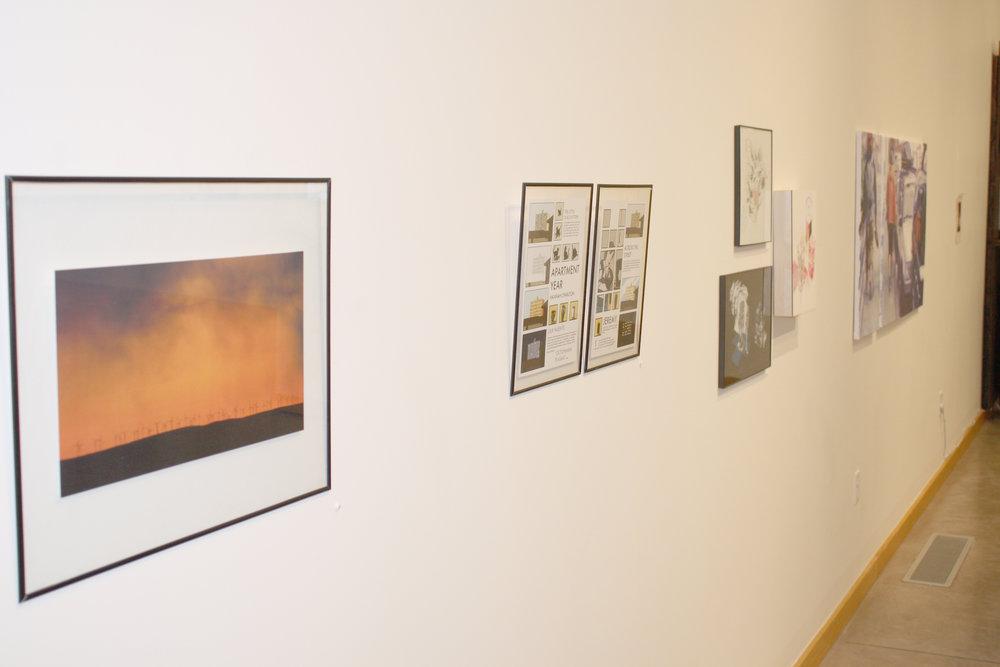A theater production is much more than what the actors and actresses present on stage. It is a correlation of talent and hours of dedication not only from actors and actresses, but also from crew members who work behind the scenes.
In Whitworth theatre’s next production “Pride and Prejudice,” the show behind the curtain is just as important as the show we see on stage.
Stage crew members, such as junior Jessica Pauley, contribute in bringing a play to life.
As stage manager, Pauley’s tasks range from setting up props and set pieces, to sweeping the stage, to making checklists for other members of the cast and crew.
“I arrive half an hour earlier than the cast and turn on all the lights and the sound board,” Pauley said. “I check the ‘magic sheet’ to make sure all the lights haven’t burnt out or that the gels aren’t melted.”
A magic sheet is a quick reference showing where all the lights are located, their purpose and the switches that control them, according to stagelightingprimer.com.
Gels, or color filters, are differently colored thin sheets of polycarbonate that are put over the lights to create a variety of colors on stage, according to stagespot.com.
The work done on lights, sound, props and set are some of the procedures the audience does not get to see. Likewise, the performers have their own checklists and daily routines behind the scenes.
Actors vary in their techniques for memorizing lines, getting into character and preparing for a performance, Pauley said.
“I focus on assuming the physicality,” said freshman Weston Whitener, who plays Mr. Darcy in “Pride and Prejudice.” “I don’t stand very tall naturally and that is something [Mr. Darcy] does.”
“Pride and Prejudice” is Whitener’s first theater performance at Whitworth, although he did participate in theater productions during high school. His roles in those plays were usually supporting characters, and getting a large role like Mr. Darcy was intimidating, Whitener said.
Actors have the difficult task of representing their characters effectively to audiences.
The challenge is doubled for senior Moria Stricker, as she is responsible for two character roles in her second main stage performance. Stricker is playing both Mary Bennet and Charlotte Lucas.
“You have to keep them straight and differentiate them,” Stricker said. “You can’t have them talk the same or move the same. You don’t want to confuse the audience.”
Lucas is more formal in stature and movement while Bennet is more laid back, Stricker said.
The slow, archaic language found in “Pride and Prejudice” causes line memorization to become a big task for the leading actors of this production.
“My technique is to memorize little chunks,” Whitener said. “Lots and lots of repetition. Lots of pacing around an empty room repeating lines to myself.”
Getting into character requires practice, focus and concentration, Whitener said.
“The hardest thing is really finding who that character is,” Stricker said. “Sometimes you really have to dig deep and read between the lines to understand how a character would feel or act.”
Before taking the stage, cast members perform pre-show rituals to help prepare themselves.
“Actors will plug in headphones and turn on classical music and go over their lines so they don’t have the lyrics distracting them from their lines,” Pauley said.
Backstage, cast and crew members are prone to performing weird dances to loosen up and mime-talk to each other when they are supposed to be quiet, Whitener said.
“I jump up and down and shake myself and take a couple deep breaths to calm the nerves,” Stricker said.
As each character is different, finding appropriate people to play those characters is an important process. A mixture of veteran actors such as Stricker and fresh faces such as Whitener audition during the casting phase. Assisting with the casting is another component of Pauley’s position.
“Honestly, the hardest part [of my job] is assisting in casting,” she said. “Partly because you want to find the perfect fit. And because this is an academic setting. Your friends are up there and you know how much they want the part but you have to do what is best for the production. It’s extremely difficult.”
Pauley’s assistance in this process contributes to the overall performance. Such is the case for many backstage crew members. The stage manager, stage designers, people who gather props, tech crew and costume designers do not always receive recognition for their hard work.
Stricker has been on stage crew for past productions and is thankful for all the work the crew members do, she said.
“If you see one of these people, tell them how awesome you think [the show] was,” Pauley said.
The performance is what it all comes down to. Pauley, Whitener and Stricker agreed that all the hours, effort and resources sacrificed find purpose in those final moments before the curtain opens.
Pauley is attentive from opening scene to curtain call, cueing the actors and the lights and sound crew.
“The moment right before the show, the lights go out and you feel the adrenaline,” Pauley said.
When a performance is about to begin the feeling is similar to being on a roller coaster; a mixture of excitement and nerves, Stricker said.
“Man, just getting on that stage, I love it,” Whitener said. “It’s going to be a great performance.”
Contact Bekah Bresee at rbresee16@my.whitworth.edu










 Spokane?
Spokane?